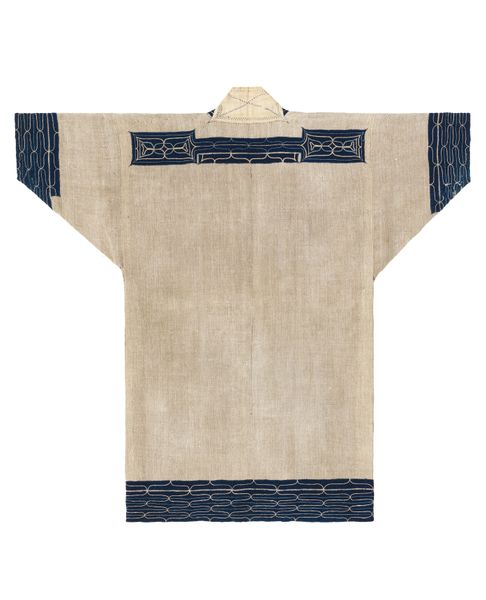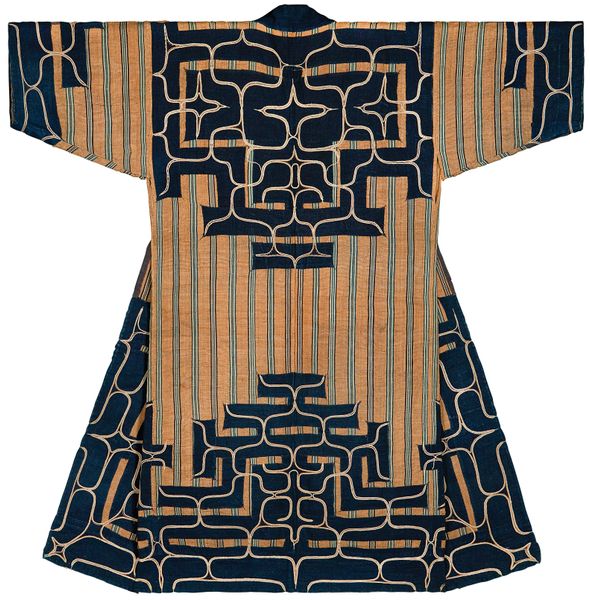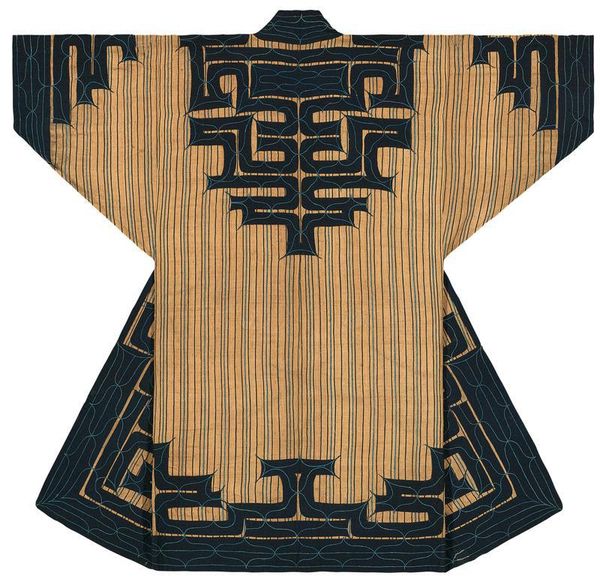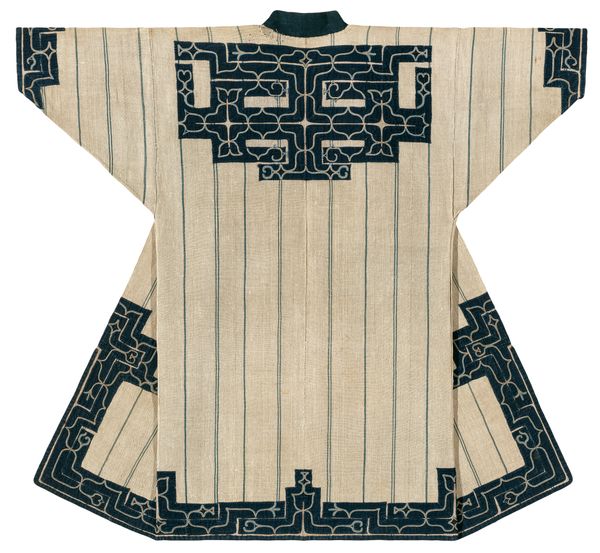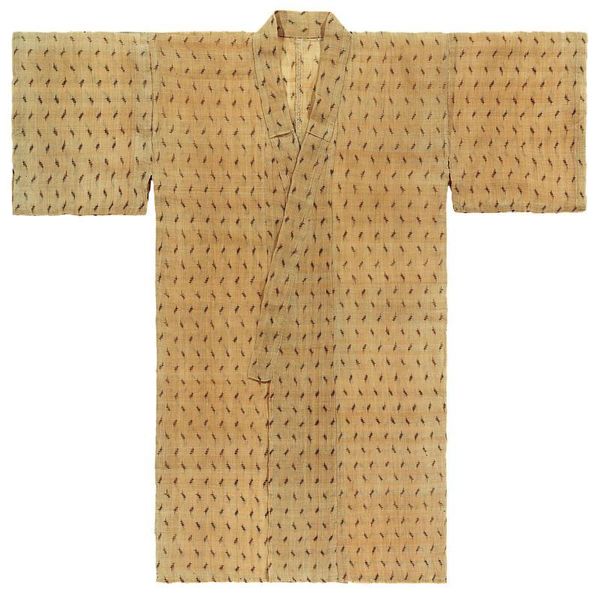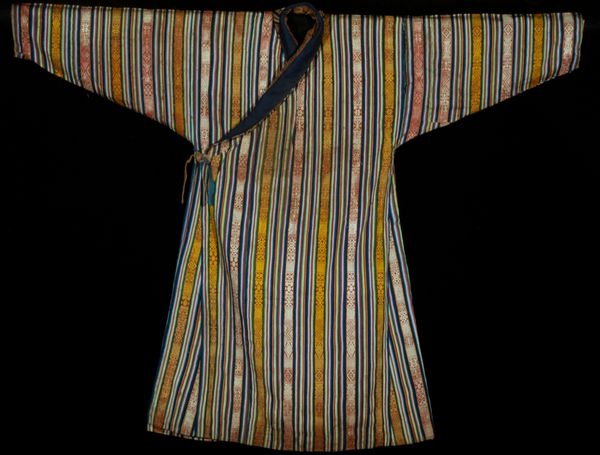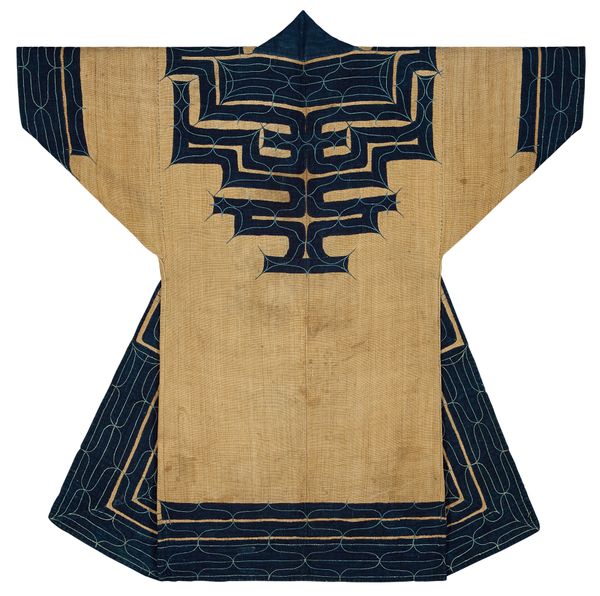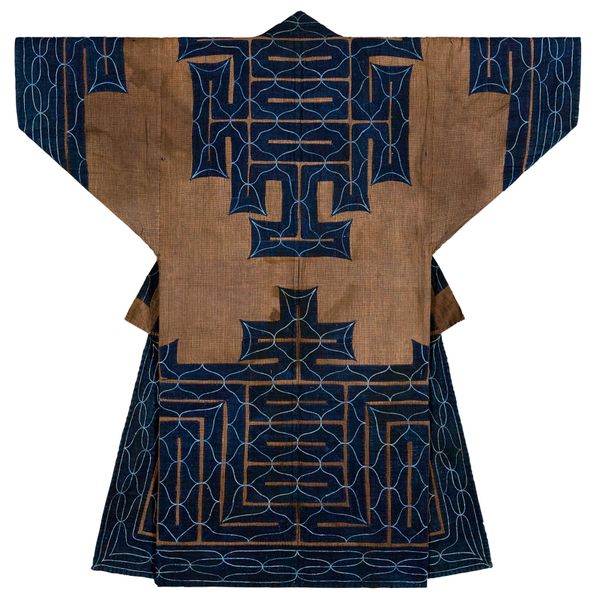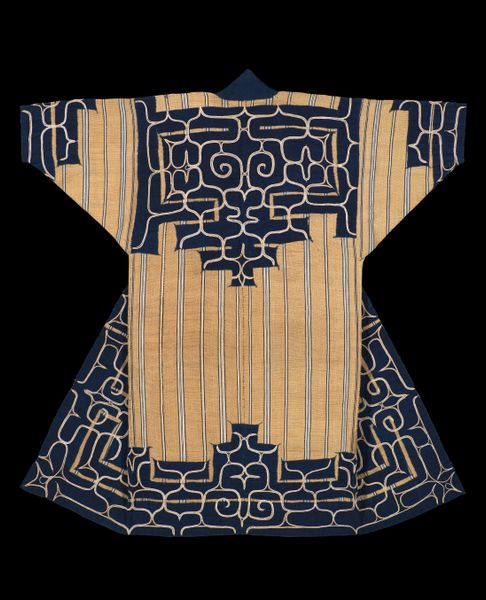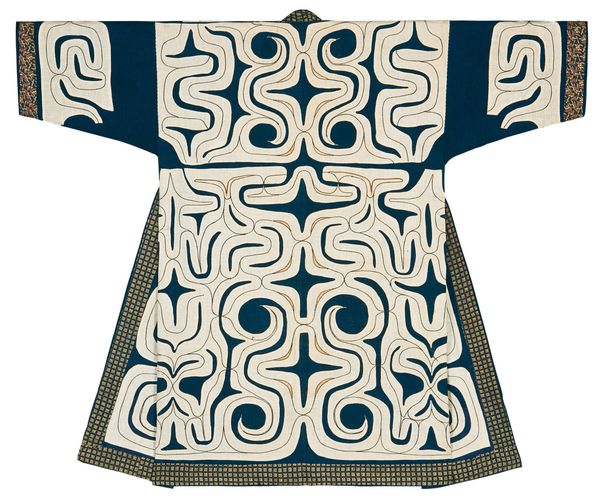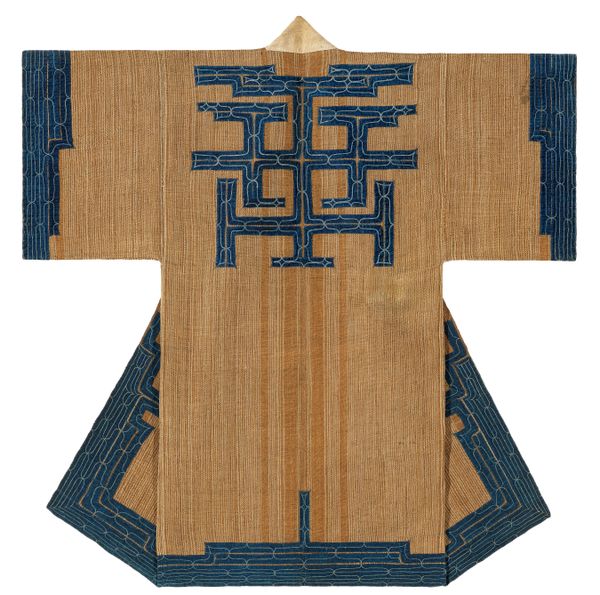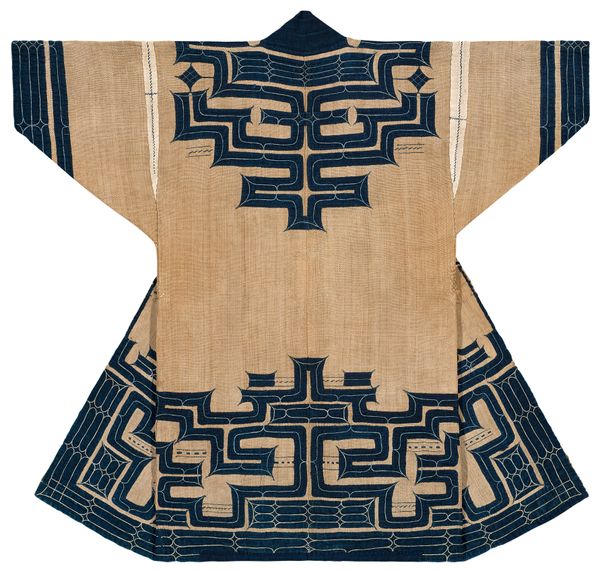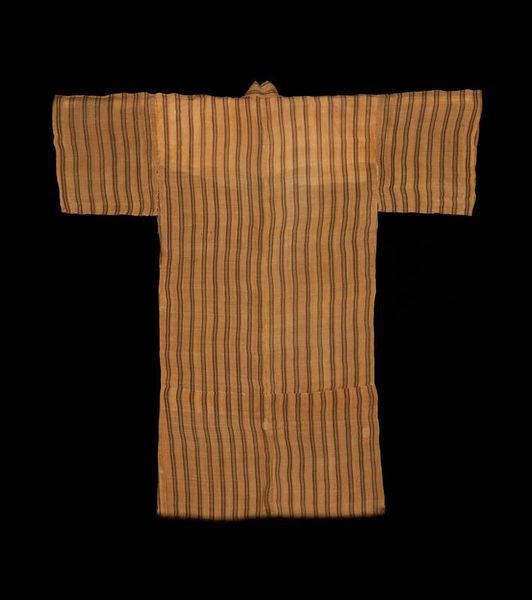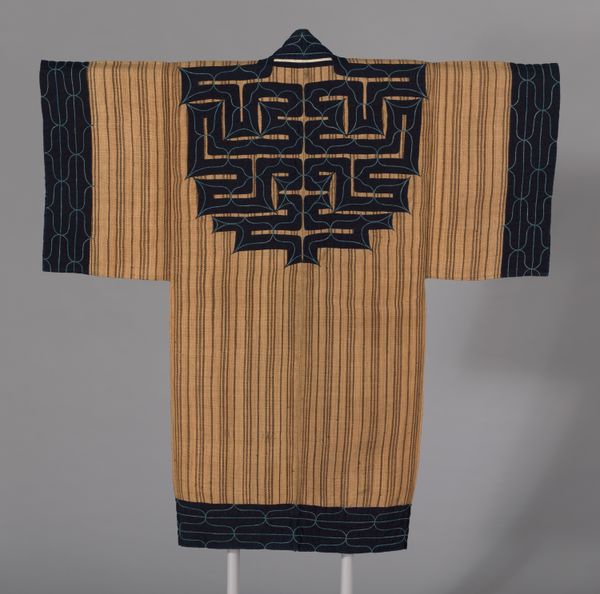
Light brown-ground Ryūkyūan robe (ryūso) with ikat (kasuri) stripes c. early 20th century
0:00
0:00
weaving, textile
#
fashion design
#
fashion mockup
#
asian-art
#
weaving
#
textile
#
clothing promotion photography
#
fashion and textile design
#
fabric design
#
line
#
clothing photo
#
textile design
#
imprinted textile
#
layered pattern
#
clothing design
Dimensions: 42 1/2 × 40 1/2 in. (107.95 × 102.87 cm) (overall)
Copyright: No Known Copyright
This Ryūkyūan robe, a ryūso, was made anonymously, using the ikat technique, also known as kasuri. Ikat involves resist-dyeing the threads before the fabric is even woven, creating a pattern that emerges as the textile is created. This is a labor-intensive process that requires careful planning and skilled execution. The weaver must align the dyed yarns precisely to achieve the desired pattern. Notice how the light brown ground and the ikat stripes create a subtle yet visually engaging rhythm. The texture of the woven fabric adds another layer of interest. The feel of this robe speaks to the hands that made it, and the cultural traditions that it represents. Garments like this were often associated with status and ceremony. They offer insight into the social hierarchies and cultural values of the time. It challenges our conventional understanding of fine art by highlighting the skill and artistry involved in textile production.
Comments
minneapolisinstituteofart almost 2 years ago
⋮
This robe is typical of Okinawan-style garments, which lack the long, detached sleeves of mainland Japanese kimonos. When Japan annexed the Ryūkyū Kingdom in 1879, renaming it Okinawa Prefecture, it required Okinawans to learn Japanese and dress in the Japanese manner. Still, garments like this continued to be made and worn. The light and dark brown sections are made of Japanese fiber banana (bashō), but the vertical stripes dyed white and black are cotton. This unlined garment would typically have been worn in summer; however, the integration of cotton into the fabric suggests fall.
Join the conversation
Join millions of artists and users on Artera today and experience the ultimate creative platform.
